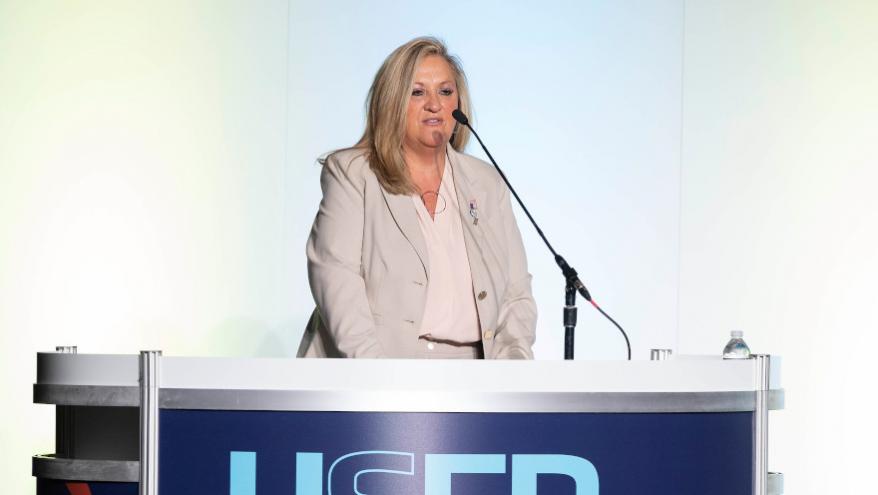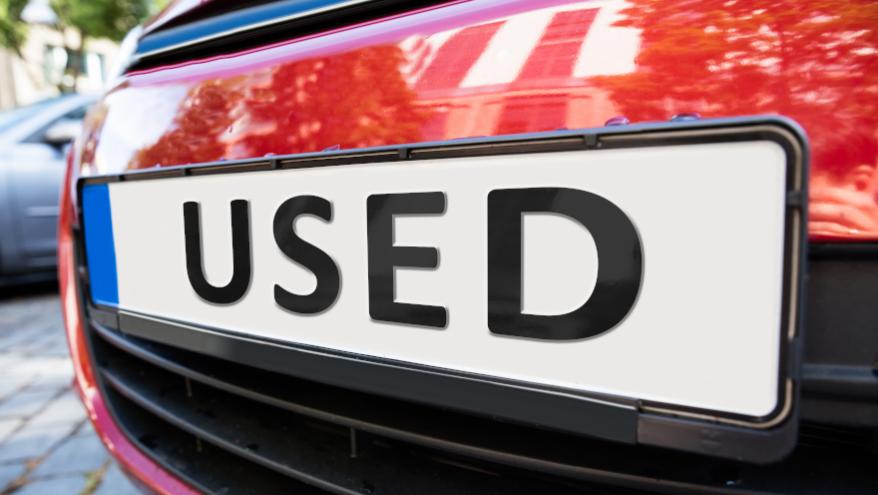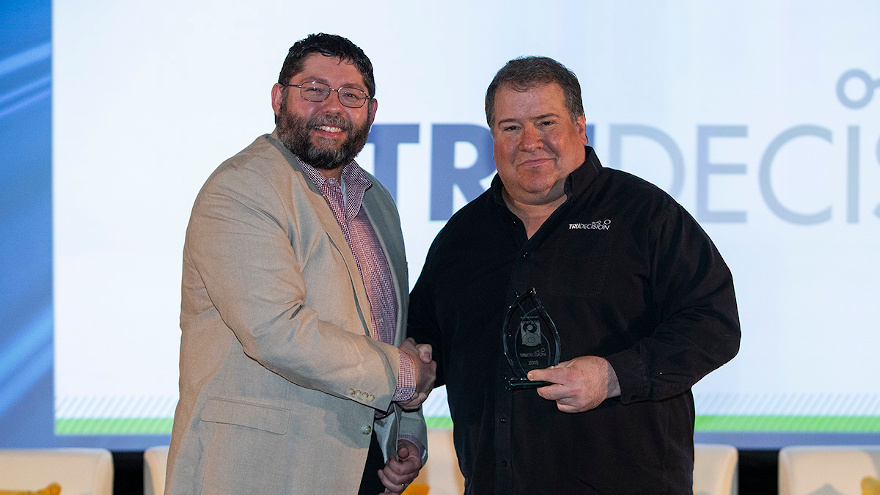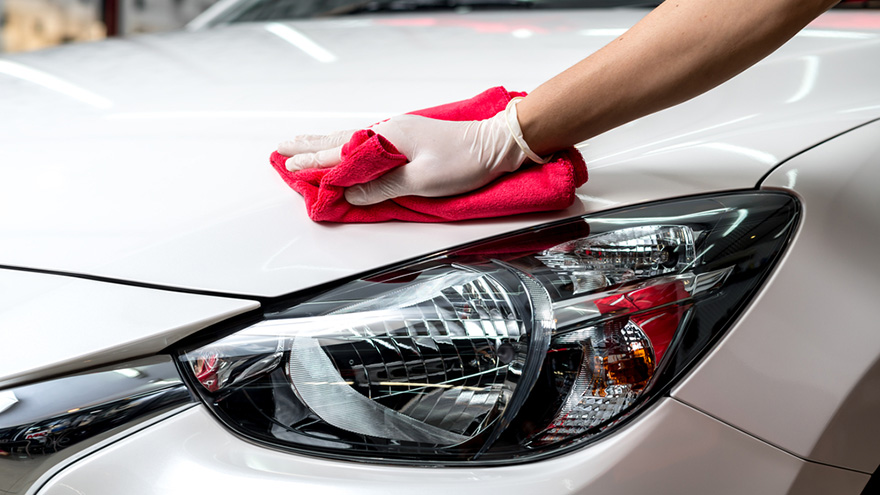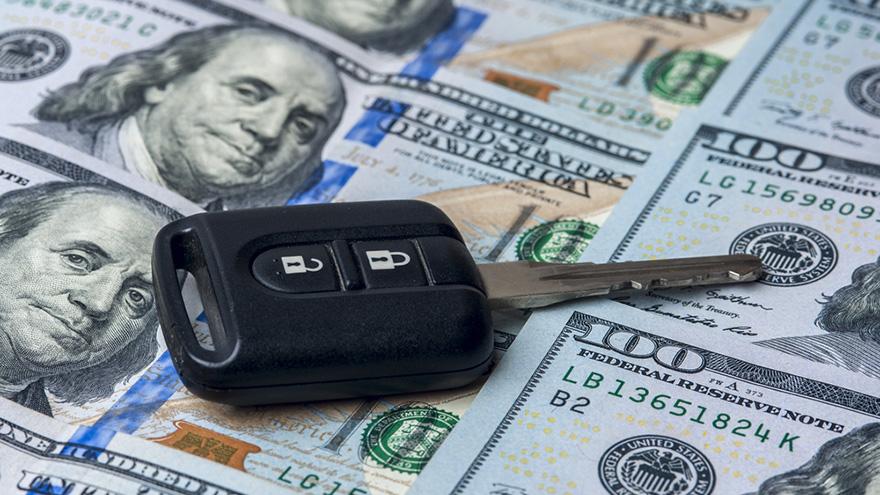The National Auto Auction Association made a pair of resources available on Friday to help members as they navigate the challenges of orchestrating sales and serving their consignor and dealership clients while the coronavirus pandemic continues.
Along with an informational video, NAAA distributed an 18-page document titled, “Playbook: Auction Start-up, Response to COVID-19.”
NAAA president Laura Taylor emphasized in a letter to members that the well-being of auctions’ employees and their families “is always of paramount importance to the National Auto Auction Association.
“But now more than ever, they depend on us as an industry to do everything we can to safeguard them during the current public health crisis,” Taylor continued.
Taylor highlighted the playbook arrived through the efforts of ADESA, Akron Auto Auction, Charleston Auto Auction, Manheim and NAAA’s safety committee to ensure the association can share the best practices for the industry and member auctions.
“Because we know from more than 70 years of experience that working with our members to find common solutions is what makes our association the successful and strong organization it is today, this playbook is thanks to a team effort,” Taylor said.
“We encourage you to use (the playbook) as a model for developing your proactive infectious disease management plan,” she continued.
Another resource is the video that contains information from an array of sources, including the Centers for Disease Control and Prevention, so auctions can establish workplace policies and procedures to protect individuals physically present at auctions.
The video can be seen on this website, and the playbook can be downloaded here.
“NAAA remains committed to using all available resources in preparing safety guidelines for our members,” Taylor said. “As this pandemic remains a dynamic situation, we will continue to assess and calibrate our approach as needed, and we stand ready to assist you or your team in any way possible.”
The improvement in retail used-vehicle sales at franchised dealerships is now more rapid than the gains in their new-vehicle sales. And that’s helping to spur continued growth on the wholesale side of the pre-owned market, according to J.D. Power.
This week’s J.D. Power Auto Industry Impact Report shows that used-vehicle sales at franchised dealerships so far this month are down 21% from pre-virus forecasts, while new-vehicle sales have seen a 27% decline.
The pre-owned retail vehicle market “is getting better,” though it is still well below pre-virus projections, said Jonathan Banks, vice president and general manager of vehicle valuations at J.D. Power, during Wednesday’s webinar.
In a Weekly Market Update released Monday, LotLinx reported, “Used-car sales bucked conventional wisdom, ending the week up slightly, but still trailing pre-COVID pace by -7.8%.”
In his weekly video recap, Cox Automotive Jonathan Smoke said, “The decline in used-vehicle sales bottomed at the beginning of April and have mostly been improving since. But last week was a really strong week.
“We estimate that used was down only 15% year-over-year last week and that trend improved again on Sunday,” Smoke said.
Meanwhile, last week marked the fifth straight improvement in weekly wholesale auction sales, according to the J.D. Power data.
After hitting a trough of 18,000 units the week ending April 5, they’ve climbed ever since, reaching 64,000 last week, the data showed.
That narrows the gap between pre-virus forecast and post-virus actual.
With the pre-virus forecast at 104,000 wholesale sales, last week’s actual tally is more than 60% of initial projections, according to J.D. Power.
A month ago, the market was at 23% for the week ending April 12 and about 17% during the trough week.
In the first two weeks of May, the average weekly wholesale sales figure has been 62,500. That is twice as high as April's average, J.D. Power said.
“On the wholesale sales front, as you would expect, if consumer sales increase, then the wholesale demand increases as well, as dealers need to obtain more used inventory. What we’ve seen this week is a continuation of the improvement in volume,” Banks said.
“We’re looking at good improvement in wholesale units, which is the dealers buying the inventory … this is driven by dealer demand and participation. The channels have already been opened for several weeks,” he said. “Now we’re seeing dealer demand increase, thereby increasing sales.”
In a wide-ranging conversation, well-known finance-industry executive Daniel Parry, who now is the chief executive officer of TruDecision, joined Nick Zulovich for this episode of the Auto Remarketing Podcast to discuss his ongoing data analysis not only of auto financing, but also the reporting of COVID-19 cases on a state level.
Parry also shared his experience of a recent vehicle purchase through a dealership near his home in Texas.
To listen to this episode, click on the link available below, or visit the Auto Remarketing Podcast page.
Download and subscribe to the Auto Remarketing Podcast on iTunes or on Google Play.
Binary Automotive Solutions, which provides warranty, certification and maintenance programs that it says can help dealerships “sell more vehicles, hold more gross and retain more customers,” is extending its free marketing program for dealerships through May 31.
The company is also shipping hand sanitizer to its California-area dealership clients that are reopening.
With the free marketing offer until the end of May, Binary is following up on its free dealership marketing support in April to extend its aid programs during the COVID-19 pandemic.
At no cost through the marketing support campaign, Binary Auto can help dealerships with design support for marketing or advertising campaigns.
Binary says its program gives back to the automotive industry as many dealerships look to bring expenses in line with customer demand.
“Dealerships have been here to support us through more than two decades of business, and this is our way of returning the favor,” Binary Auto Solutions founder James Binkley said in a news release.
Binkley continued, “We are proud to help dealerships reopen in this way.”
The company said dealerships using Binary’s Lifetime Warranty Program as an additional customer benefit helps those dealers bring value to discerning customers, which Binary said is “an important distinction in today’s competitive landscape.”
Binary said it provides its dealership clients with marketing and merchandising items that help communicate the benefits of a warranty across the dealership, such as point-of-sale promotions, window stickers, banners and digital marketing content.
Nearly halfway through May and spring might be making a comeback in the auction lanes.
Multiple Black Book representatives made that assessment in the latest Market Insights report that showed a bit of a value rebound when compared to the sharp declines triggered by the coronavirus pandemic.
“Values have continued to trend downward, but the level of bidding activity this past week reminded us of a more traditional spring buying season.” Black Book vice president of automotive valuations Laura Wehunt said in the latest report.
According to volume-weighted data, Black Book indicated overall car segment values softened by 0.41% this past week. Analysts called it a “welcome sight” after three consecutive weeks of greater than 1.30% week-over-week depreciations.
“Spring was in the air for sporty cars as the warming weather drastically slowed the depreciation of this segment down to 0.11%, compared to 0.74% the week prior,” analysts added.
Looking again at volume-weighted information, Black Book determined overall truck segment values (including pickups, SUVs, and vans) decreased by 0.76% last week. As with the car segments, analysts said this reading was a “welcome change” after three weeks in a row of overall weekly depreciations exceeding 1.00%.
Black Book pointed out minivans have been in high supply on the auction lanes and the values are reflecting it with the average weekly change for the last four weeks being a decline of 1.41%.
Turning next to what Black Book sales observers noticed, the anecdotes continued with more references of spring. Here is the rundown:
— From North Carolina: “It had a very Spring market vibe today with the $10,000 and under vehicles being in high demand.”
— From South Carolina: “We finished the day out with our overall sales rate at a little over 70%. We anticipate a lower volume next week due to a lack of repos in A pril.”
— From Georgia: “Cars were definitely in demand at this sale with the majority selling.”
— From Illinois: “We saw an uptick in sales this week with a 91% sale rate at our closed sale.”
— From Florida: “SUVs were in high supply today and sold prices reflected the oversupply.”
The Big Apple certainly has been one of the hardest-hit cities by the coronavirus, but New Yorkers who need to purchase a vehicle or renew a lease now can visit dealerships in person, although by appointment only, stemming from a decision made by state officials and recapped by the Greater New York Automobile Dealers Association (GYNADA).
According to a news release distributed on Tuesday, GYNADA explained the new state guidance, which comes with detailed protocols to ensure the safety of customers and employees, permits dealerships to schedule one-on-one appointments to see and test drive a vehicle and meet with a sales representative.
The announcement arrived a week after GNYADA, working with other associations in New York State, submitted a plan to the governor’s office to restart safe on-site sales amid the COVID-19 crisis.
Officials said walk-ins are still not permitted, so customers must call to make an appointment prior to visiting and speaking with a sales representative at the dealership.
During any appointments, the guidance indicated social distancing must be maintained and customers and employees in contact with one another must wear masks.
Under the new guidelines, dealership staff will ensure social distancing, require both employees and customers that enter the dealership premises to wear face masks, provide plastic covers for high-touch surfaces in the dealership and during test drives and consider instituting a dedicated schedule for at risk individuals
GNYADA also highlighted dealerships have instituted stringent cleaning and disinfecting practices.
Before a customer can take a test drive, the association said vehicles will be cleaned with EPA-approved cleaning agents, following CDC-recommended sanitization.
“Dealers have been diligent serving customers during this unprecedented crisis, and this is one way to begin reopening an important sector of the state economy,” GNYADA president Mark Schienberg said. “Since the governor’s office identified vehicles repairs and service work to be an ‘essential business.’ our dealers have followed the state and CDC’s protocols to keep their employees and their customers safe.
“Now with this new state guidance that allows face-to-face sales with prior appointment, dealers will be able to sell and lease cars more easily to those who need them. The health of our employees and customers is a top priority, and our member-dealers have been addressing this in the safest manner to provide needed services for their customers,” Schienberg continued.
GNYADA emphasized this development also helps get more people back to work at neighborhood franchised dealerships. The association pointed out franchised stores are the fifth-largest retail employer in the Metro New York region.
GNYADA represents more than 400 franchised dealers downstate, including New York City, Long Island, Westchester and surrounding counties.
Metro New York franchised dealers collectively not only are the fifth largest retail employer throughout the downstate region, they help to support 71,280 jobs, contribute $2.5 billion in local and state taxes and support a total payroll of $4.5 billion, according to an economic impact survey conducted in 2019.
The decline in the certified pre-owned vehicle market escalated in April, but bright spots are emerging, according to data and analysis provided by J.D. Power Valuation Services.
Still, the year-to-date decline in CPO sales after April is more than double what it was just a month earlier, the company said.
There were approximately 128,000 CPO sales in April, a 45.2% year-over-year decline (or 106,000 units), according to J.D. Power.
Through four months of 2020, there have been 745,000 certified sales, which is 166,000 units and 18.2% softer than the year-ago period.
At the end of March, the year-to-date decline was 8.9%, J.D. Power said.
Some OEM programs have been able to slow the declines or even remain ahead. For instance, certified declines were under 10% year-over-year last month for Ram and Mercedes-Benz, compared to the 45.2% overall market decline, according to J.D. Power.
Certified sales for both Ram, which is up 12.7%, and Mercedes (up 1.8%) through four months are ahead of year-ago figures. Same with Subaru (up 1.9%).
And there are other positives in the CPO market.
As reported previously in Auto Remarketing, Fiat Chrysler Automobiles’ head of CPOV Eric Swanson said the program has put a big emphasis on video conference calls and digital retailing, and finished with a 13% share in April, its best ever.
Ron Cooney, who is TCUV sales operations manager at Toyota Motor North America, said via email: “On the sales side, we have seen great week over week and month over month growth since this all started.
“This weekend’s business was a 150% improvement over the first weekend in April,” Cooney said of May’s first weekend. “A couple of our regions saw weekend TCUV sales increases over the same weekend last year. That’s amazing! Each day’s national sales exceeded the daily target for the last several days. So, things are really trending in the right direction.
“Online search and lead data is showing great signs of improvement too. Some KPIs show consumer engagement and interaction nearing pre-epidemic levels,” he said.
Volkswagen, also among the litany of OEM programs ramping up CPO incentives, is offering 0% financing for up to 60 months on certified through the end of next month. Michael Ashton, who is VW’s senior manager of national CPO/used operations, said this incentive began in mid-April and led to a significant uptick in CPO “within days.”
Auto Remarketing’s full report on OEM CPO incentives can be found here.
Still, even with automakers sweetening the pot on certified with enticing incentives “that are in line with new,” the market remains sluggish from a sales perspective, says Ben Bartosch, who is manager of forecast analytics at J.D. Power Valuation Services.
“Dealers may have begun forgoing CPO premiums to move vehicles off lots — Certified sales of CPO eligible units have been steadily declining since February,” Bartosch said in emailed comments, pointing out that CPO penetration rates for mainstream brands are down 11 percentage points to 31%, with luxury brands down 10 points at 57%.
There have also been some struggles in other metrics around CPO, including gross profits.
Last month, gross profits on non-CPO was 3.3% for mainstream brands. That marked the “first time in years” that it was higher than gross profits for CPO (3.0%) on the mainstream side, Bartosch said.
For luxury sales, CPO gross profits were at 1.9% in April, still ahead of non-CPO (1.4%).
The aforementioned gross profits on CPO in April were also down for both mainstream and luxury compared to where they were in March, when it was 5.2% for mainstream and 4.0% for luxury, according to the J.D Power data.
Certified turn rates also struggled in April. For mainstream brands, CPO days-to-turn was 49, up 11 days. Premium brands saw a 15-day increase at 59, according to J.D. Power.
As for a metric J.D. Power dubs “disposer loyalty,” mainstream brands were at 54% (down from 58%). Luxury brands were at 45%, up from 43%.
Acquisition remains a challenge, too.
“Purchased/extended leases and a mostly shutdown wholesale auction market made it extremely difficult for dealers to acquire and certify CPO eligible inventory,” Bartosch said.
“Direct-to-dealer channels showed relative strength and stability in pricing, which is an ideal channel for dealers to quickly acquire the best of CPO eligible inventory,” he said.
Challenges aside, it’s vital for dealers to acquire certified vehicles.
“With the market beginning to shows signs of a recovery and the implementation of stronger CPO incentives, dealers should be making every effort to secure CPO eligible vehicles given the significantly fewer days-to-turn, higher profit margins, and stronger captive (penetration),” Bartosch said.
To support independent dealers as they work through the economic impact of COVID-19, Automotive Finance Corporation introduced its customer-relief program to customers on March 24.
On Tuesday, AFC said more than 10,000 customers have taken advantage of the program. AFC, a business unit of global vehicle remarketing and technology solutions provider KAR Global, has deferred more than 117,000 payments in the first month of the program, totaling more than $84 million.
AFC launched the customer relief program to help dealers that saw business challenges as a result of the COVID-19 economic downtown.
The company said that as consumer demand for retail used vehicles has declined, that has extended the length of time that floor-planned vehicles remain on dealership lots.
Because of that, AFC has extended its payment terms and provided an option for eligible customers to make no payments on any new or existing unsold eligible vehicles through May 31.
AFC said it has seen appreciation from customers regarding its quick response and support through the tough times. One of those customers is George Bechara, who owns Sky Leasing and Rental in San Antonio.
“AFC’s Customer Relief Program came right on time to help lower payments when business income went down,” Bechara said in a news release.
Bechara continued, “This program is a big deal and is helping us keep our doors open for business.”
AFC President Jim Money described dealers as “the small businesses that make up the backbone of our economy” and said those dealers need support and compassion more now than ever.
“Without consumers visiting lots, dealers are especially susceptible to economic hardship,” Money said in a news release.
Money continued, “We view every dealer relationship as a long-term partnership, so we’re committed to doing what we can to help them through the short-term challenges they’re experiencing right now.”
To ensure customers’ challenges are heard, understood and considered, AFC’s local branch teams have actively communicated with their customer base throughout the pandemic.
“We care about the wellbeing of our customers, their business and their livelihood,” Money said.
Money continued, “Our local teams understand the regional market conditions and check-in regularly to ask how we can help. Though we miss the personal interaction, this crisis has only reinforced our commitment and dedication to our customers.”
AFC launched a dedicated COVID-19 webpage and phone line as an additional resource for dealers. Those resources provide information about government and community programs, such as those for available loans and wage subsidies. AFC offers a site for relief program details and resources.
The company said it “remains dedicated from a distance,” but encourages customers to temporarily conduct all regular transactions on AFCDealer.com or the AFC On the Go mobile app. AFC says that with its online services, customers can access services including making payments, flooring units and viewing inventory management reports.
As Hertz scrambles to modify its monthly vehicle-lease payments and other financial commitments, Fitch Ratings is bracing for the growing possibility the rental-car company soon will be filing for bankruptcy because of the collapse of the travel industry due to the coronavirus pandemic.
On Tuesday, Fitch Ratings said it downgraded all of the outstanding asset-backed securities (ABS) issued by Hertz Vehicle Financing, totaling $6.04 billion. The firm explained the rating actions are driven by elevated risks to the ABS notes stemming from Hertz acting as servicer, administrator, lessee and guarantor for the note and the continued failure to pay the issuer’s ongoing monthly operating lease obligations in full, along with the seemingly high possibility of their inability to meet future ABS liabilities when due.
“The rating actions encompass the unprecedented impact of the coronavirus pandemic on the travel sector, and Hertz’s operating cash flow generation threatening their ability to service the ABS notes, as well as the pandemic’s impact in driving Hertz’s fleet depreciation higher and values lower in the past two months. The pandemic continues to place unforeseen pressure on the U.S. economic outlook and rental-car sector,” Fitch Ratings said in a news release.
“The ongoing dislocation, closures of and limited activity in the wholesale market across vehicle auctions nationwide is creating unique challenges for Hertz in de-fleeting to generate disposition proceeds, negatively affecting their monthly operating lease liabilities, and threatening their ongoing corporate health and viability, driving them closer to bankruptcy. These heightened risks, along with the uncertainties of how a potential Hertz bankruptcy may unfold, contributed to the ABS note downgrades,” Fitch Ratings continued.
Fitch Ratings recapped that on April 29, Hertz filed an 8-K with the Securities and Exchange Commission disclosing that on April 27 the company failed to make the full operating lease payment, including interest and principal on the ABS notes. The filing also indicated Hertz did not make the required lease obligation of $498 million for the March collection period. This event triggered an amortization event of the outstanding ABS notes on May 1, following a short grace period.
“In an amortization event, all proceeds from Hertz’s vehicle sales are directed towards paying down principal of the notes going forward,” Fitch Ratings said.
Following this failure to pay event, Fitch Ratings noted that Hertz obtained forbearance on the fleet liquidation event and a waiver from its senior credit facility lenders to delay such payment event to May 22, as disclosed in an 8-K filing with the SEC on May 5. This forbearance allowed Hertz time to potentially workout additional financing solutions for or restructurings of the Issuer liabilities outside of a fleet liquidation event, in which all vehicles will be sold to pay-off the outstanding notes.
“It is uncertain if such waivers/forbearance and process thereof, as well as an additional forbearance required from ABS noteholders, will proceed in coming weeks,” Fitch Ratings said.
“Subsequently, Hertz made an ABS note interest payment on or around May 5 to the Issuer for the March 2020 collection period lease obligation, but the principal payment remains unpaid,” Fitch Ratings added.
While the firm acknowledged it is unclear exactly how the pandemic and a Hertz bankruptcy will evolve, Fitch Ratings emphasized that its ABS analysis assumes that Hertz will continue to operate via a Chapter 11 bankruptcy filing and not proceed to liquidate the company and its assets via a Chapter 7 filing.
“Therefore, Fitch would expect that the process would involve Hertz continuing to operate and maintain a notably smaller fleet, versus a complete liquidation and dumping of their entire portfolio into the wholesale vehicle markets and auctions at once in such a stressed environment currently,” Fitch Ratings said. “The strategy of operating in bankruptcy with a smaller fleet may alleviate the severity of the values declines in their fleet to some extent.”
Fitch Ratings went on to explain that the issuer is structured such that, in the current ongoing amortization event, all outstanding series, including the Hertz Vehicle Financing, receive a pro-rata share of vehicle liquidations which then pay down the notes in each series by order of seniority.
Since it’s already May, Fitch Ratings said it assumed an additional month of depreciation on the outstanding fleet balance utilizing depreciation forecasts for 2020 at a “conservative” 30% annual rate. The resulting fleet balance was thus reduced by 2.50% depreciation (30% divided by 12 months) to $11.7 billion.
Fitch Ratings continued to mention that it then assumed a Hertz fleet liquidation to take up to six months.
“This time period was utilized on the assumption that Hertz continues to operate after filing a Chapter 11 bankruptcy while continuing to liquidate their fleet to a more sustainable ongoing operating level under the Issuer early amortization event,” Fitch Ratings said.
“Uncertainty exists around such a liquidation scenario timeline, whether in or out of a Hertz bankruptcy, and may drive Fitch to revise such a base six-month liquidation period out longer, which may then affect ABS ratings negatively,” the firm added.
Tom Freiert, vice president and co-founder of automated imaging company Black Widow, joins the Auto Remarketing Podcast and explains how the company’s “drive-through” vehicle imaging services are much like an augmented car wash and how the pandemic has driven demand for such services in the auto-auction business.
“This digital revolution has been kind of knocking at the door for quite some time … the virus and everything going on, it kicked the door down,” Freiert said. “And a lot of people weren’t necessarily prepared for it. There was a lot of stuff being tested out there, but it really accelerated the need for this.
“These progressive auctions are looking for ways to be able to maximize on the digital space, to be able to create those digital sales.”
To listen to this episode, click on the link available below, or visit the Auto Remarketing Podcast page.
Download and subscribe to the Auto Remarketing Podcast on iTunes or on Google Play.

